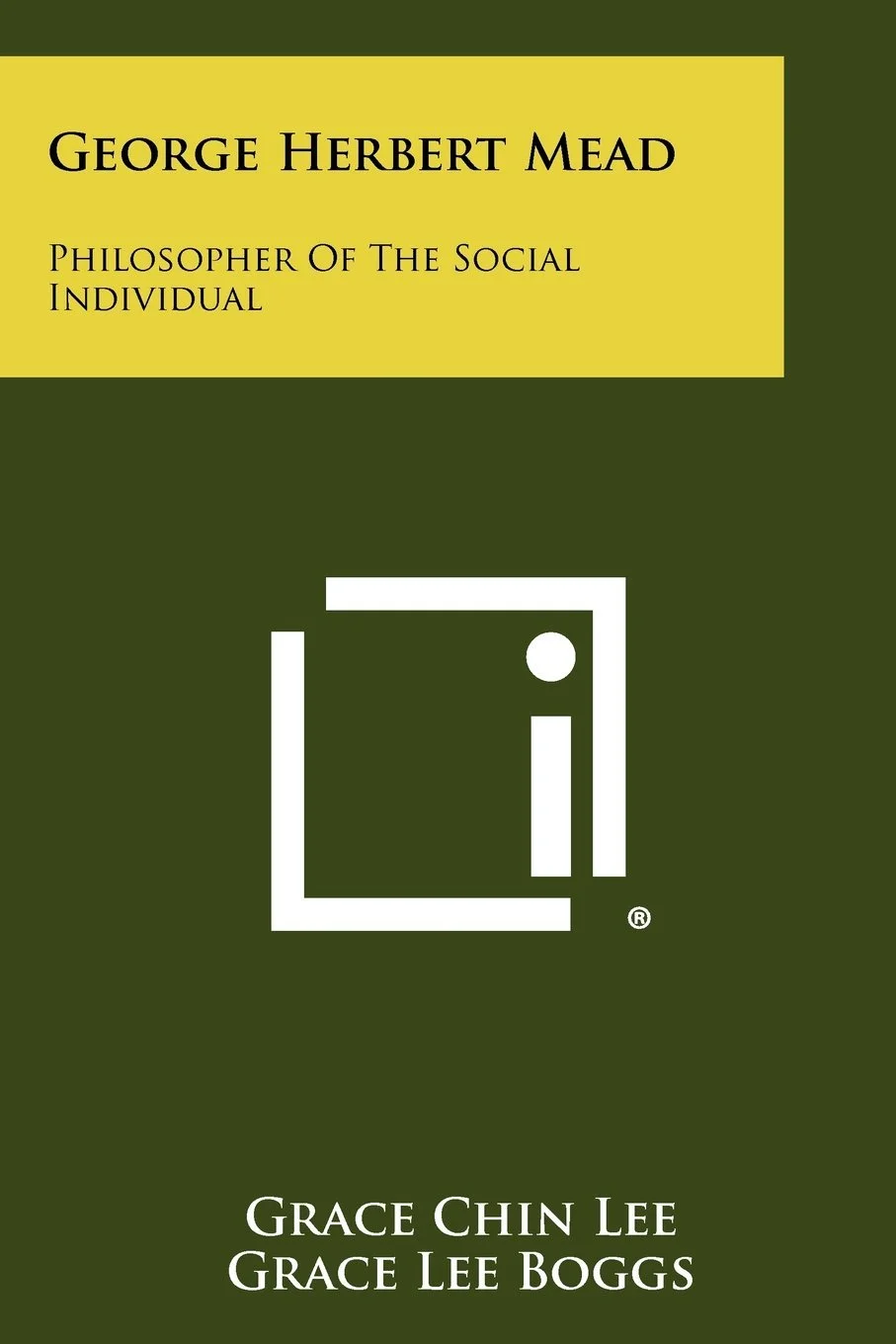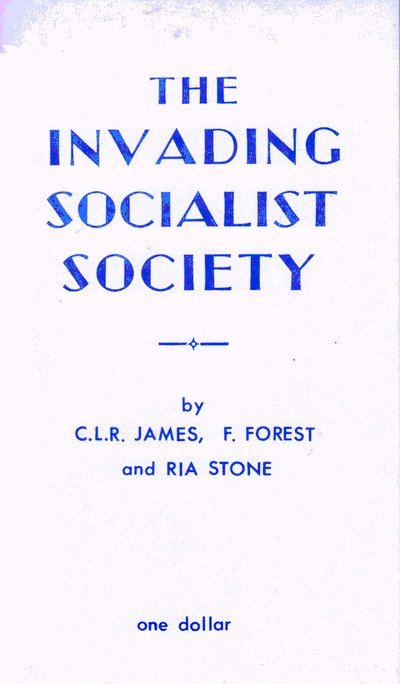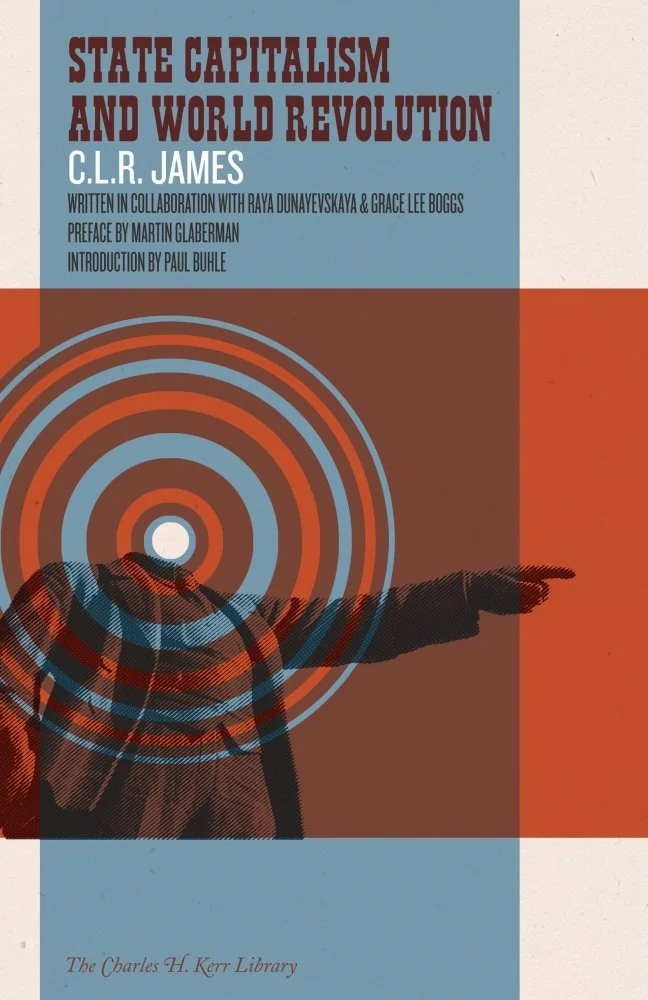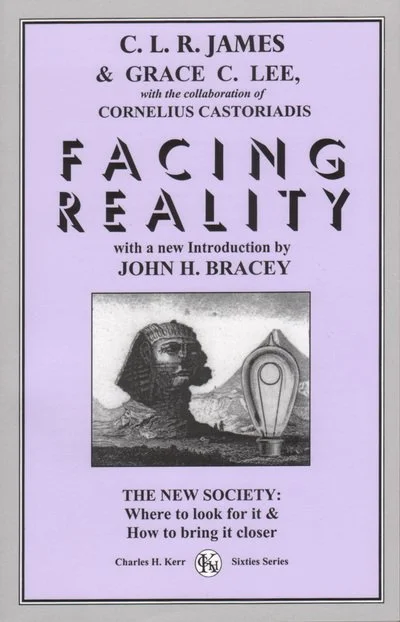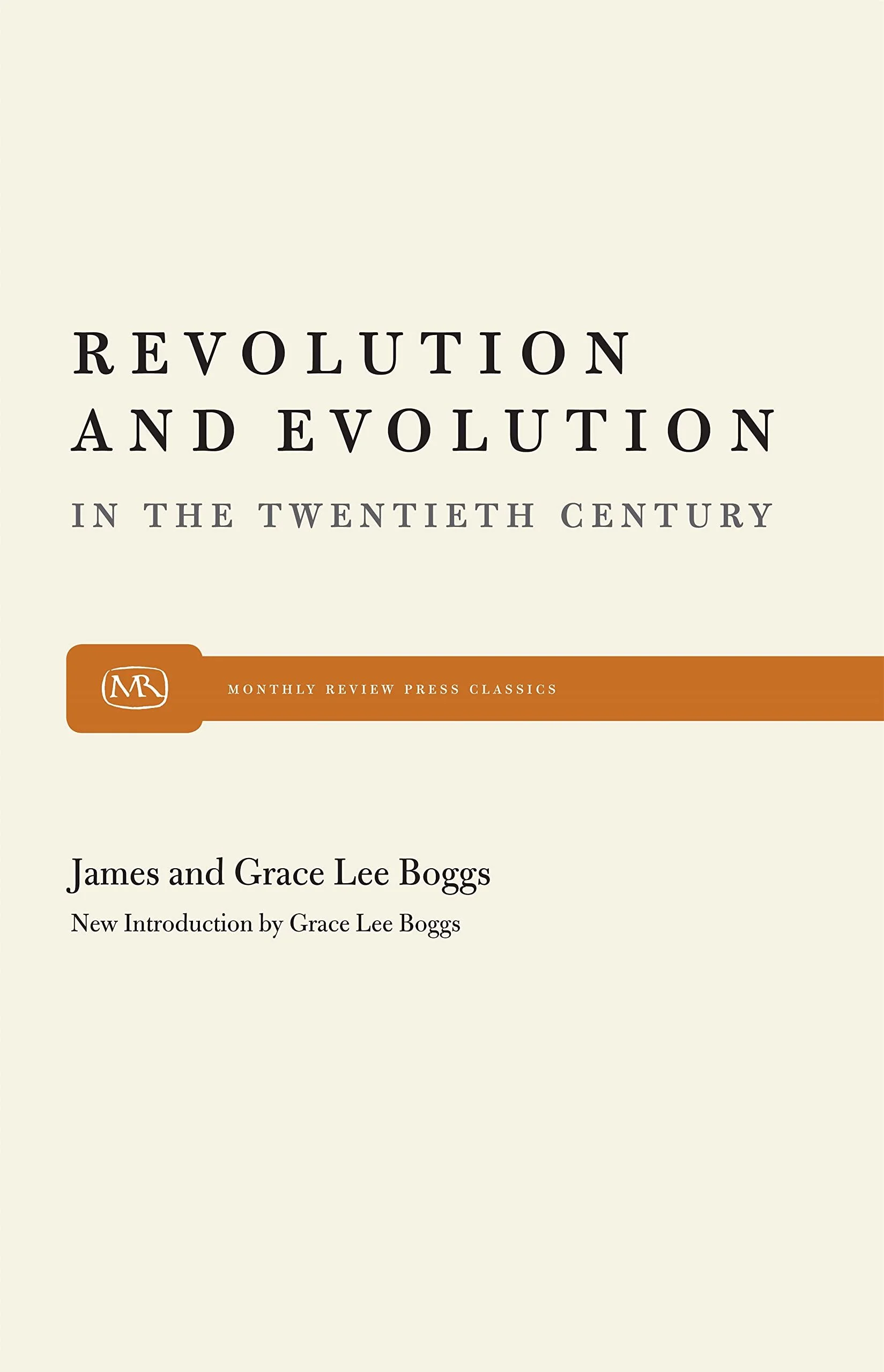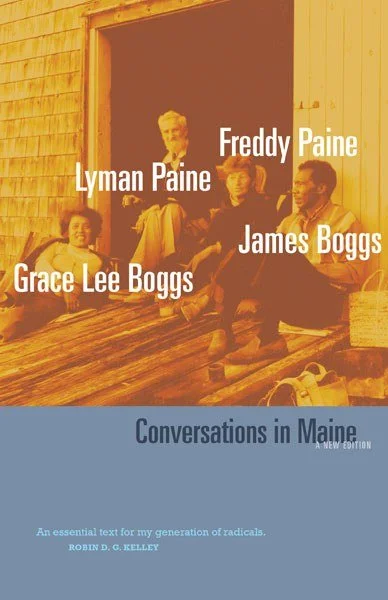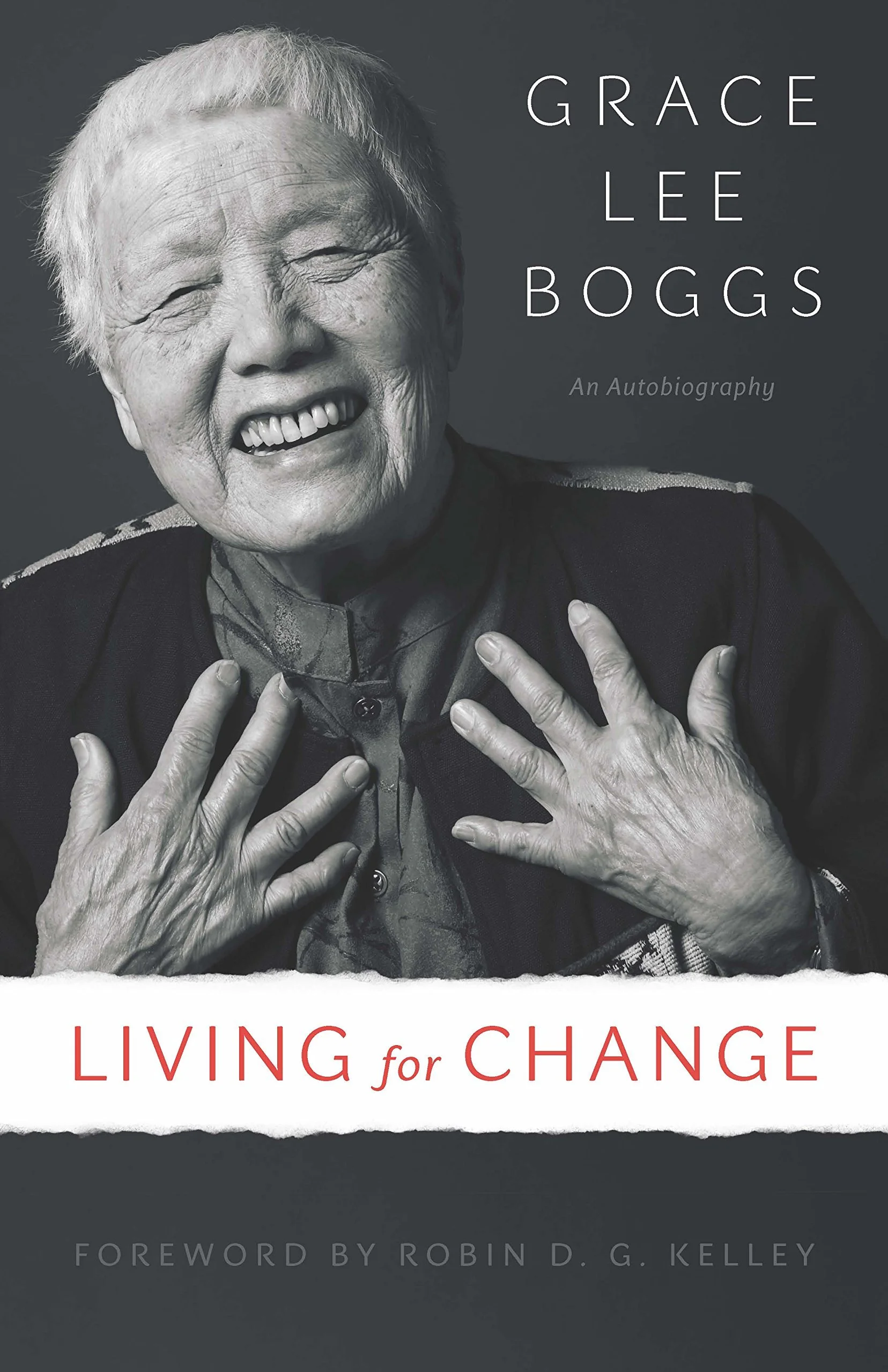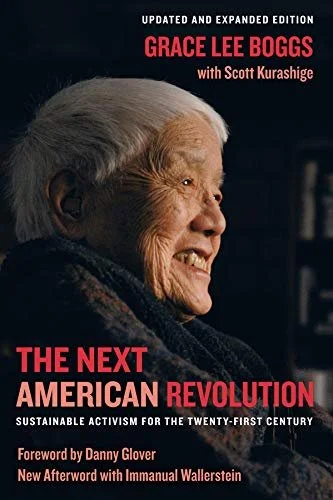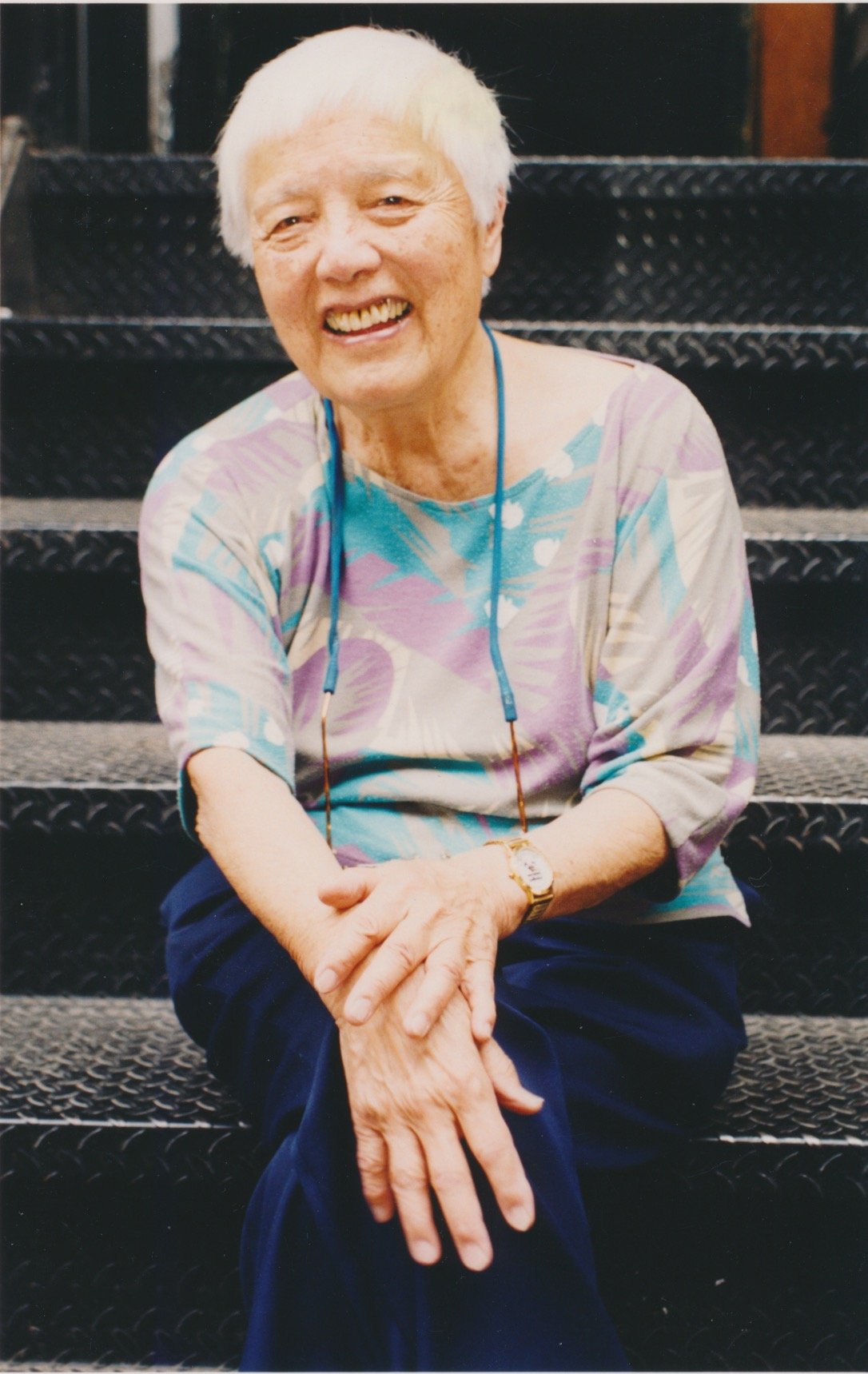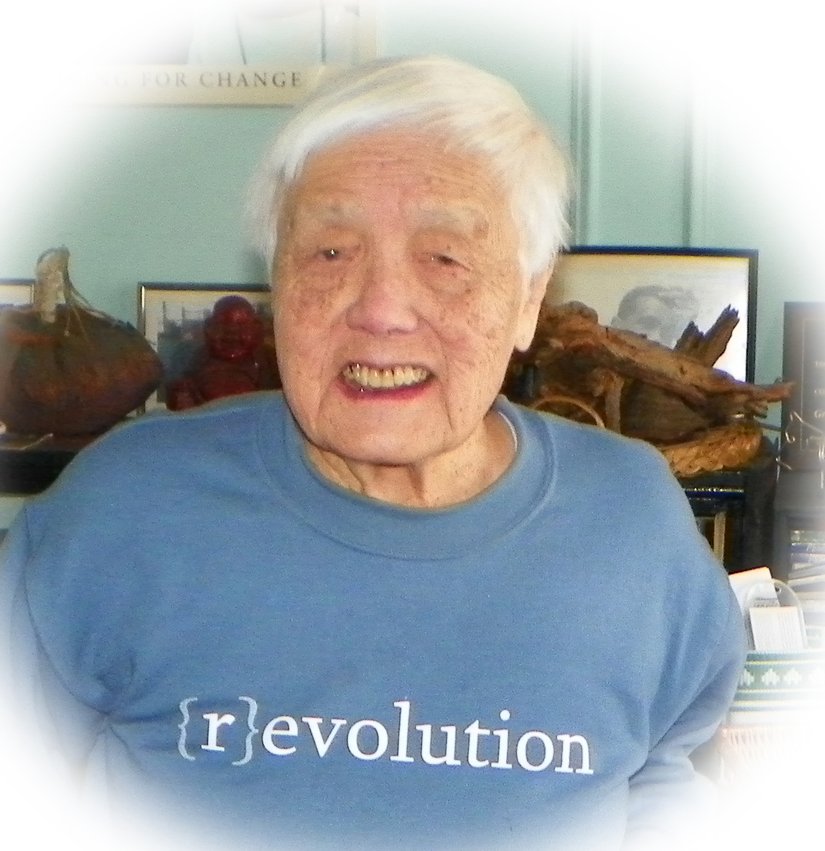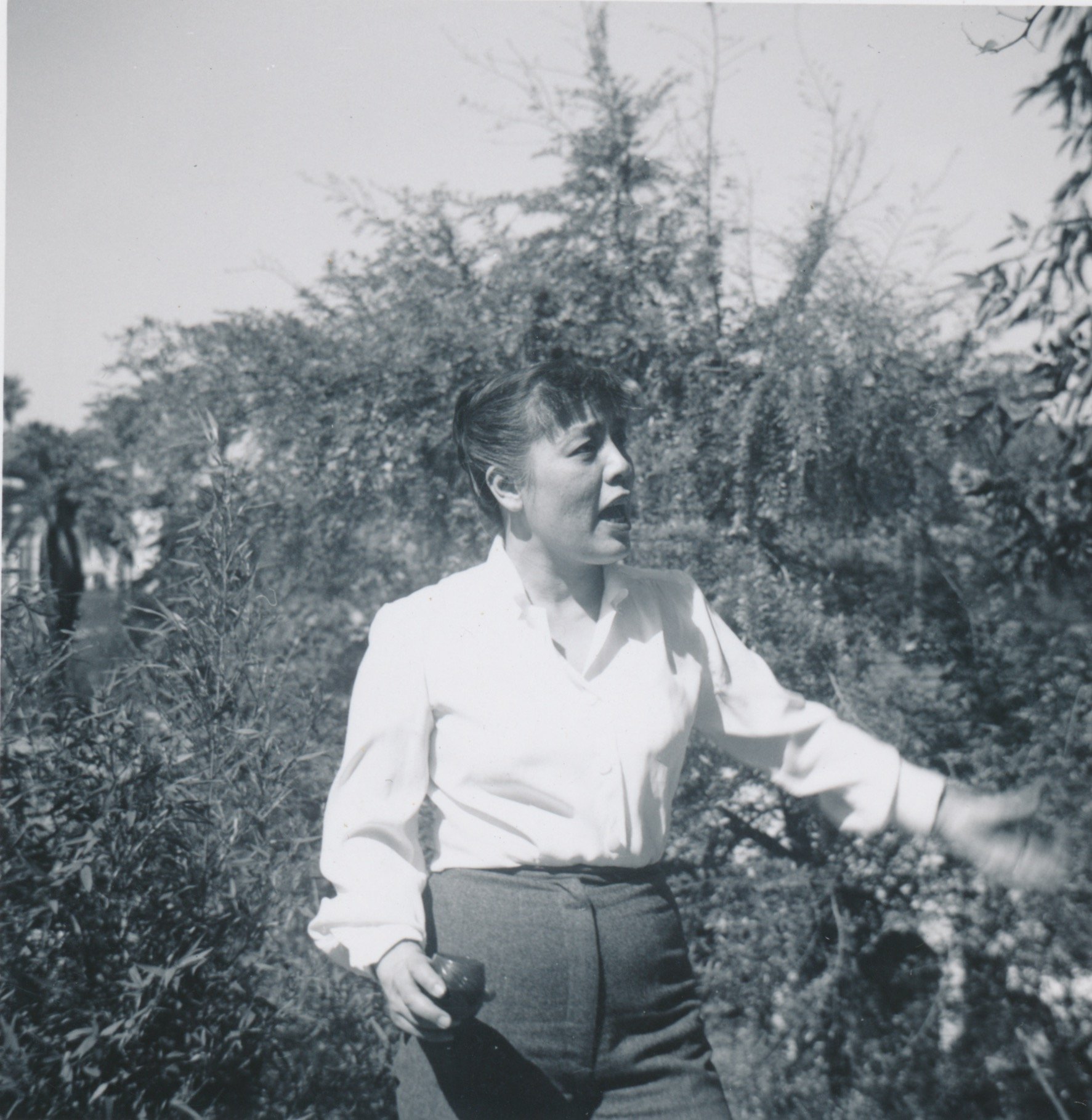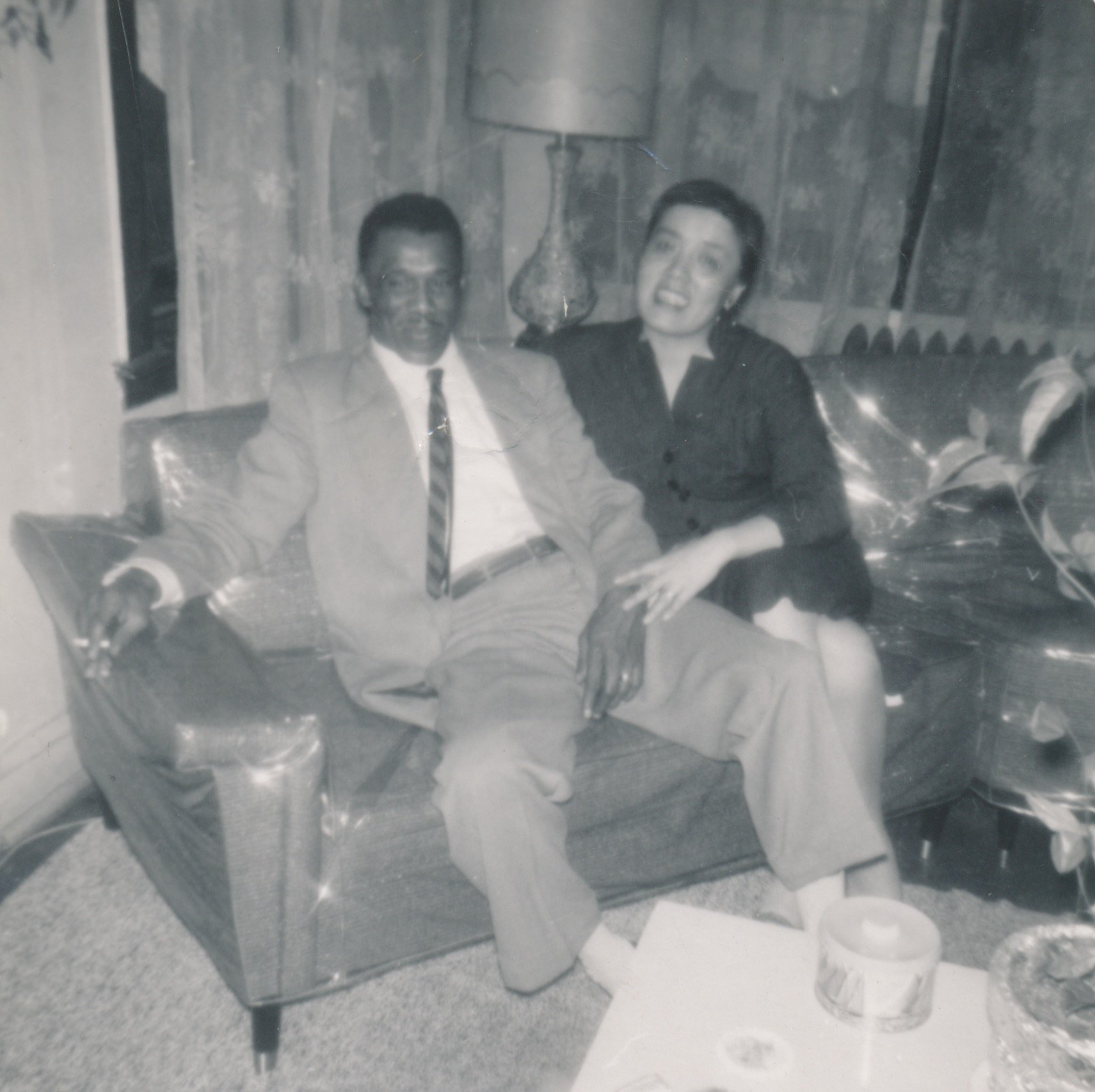
Grace Lee Boggs
June 27, 1915 - October 5, 2015
Biography
James (Jimmy) Boggs (May 27, 1919-July 22, 1993) and Grace Lee Boggs (June 27, 1915-October 5, 2015) were two of America’s foremost revolutionary theoreticians, human rights activists, and community organizers of the 20th century. Their marital union, which began in 1953 and spanned 40 years, was unique, powerful, balanced, and productive.
Grace Lee Boggs, of Chinese descent, was born in Providence, Rhode Island, and later moved to New York City, where her father, Chin Lee, became New York’s premier Chinese restaurant owner. Grace received her BA from Barnard College (Columbia University) in 1935 and her Ph.D. in philosophy from Bryn Mawr College in 1940.
The famed activist and actor Danny Glover wrote in the forward to The Next American Revolution: Sustainable Activism for the Twenty-first Century: “It is phenomenal to think about what we can learn from Grace’s life. Imagine being born two years before the Bolshevik Revolution and still here after its demise. … Imagine participating in discussions with many great thinkers my generation studied in the 1960s – Kwame Nkrumah, C.L.R. James, George Padmore. … Imagine her among these titans of struggle – not just sitting around in some isolated place talking about what we should be doing, but doing it herself.”
Jimmy and Grace’s home on 3061 Field Street in Detroit became the Mecca for the most ardent black revolutionaries to emerge in the 1960s, including Milton Henry, Richard Henry, Ahmad Muhammad, General Baker, Vincent Harding, and William Strickland. They were connected to Malcolm X, Dr. Reverend Martin Luther King, Jr., Reverend Albert Cleage, Danny Aldridge, Ossie Davis, Danny Glover, among others. Their analysis significantly impacted the Black Freedom struggle during the 1960s -1970s and beyond, particularly citing the cities as the battleground versus the southern US. In the 1960s, they advanced the idea that the American socio-political nexus required the confluence of class and race struggle of racial and class analysis. Their analysis called for Black Power in Detroit as early as 1963..
The Boggses' prolific writings and publications and philosophy of dialectical humanism still motivate and resonate with activists and young people today.
Bibliography

